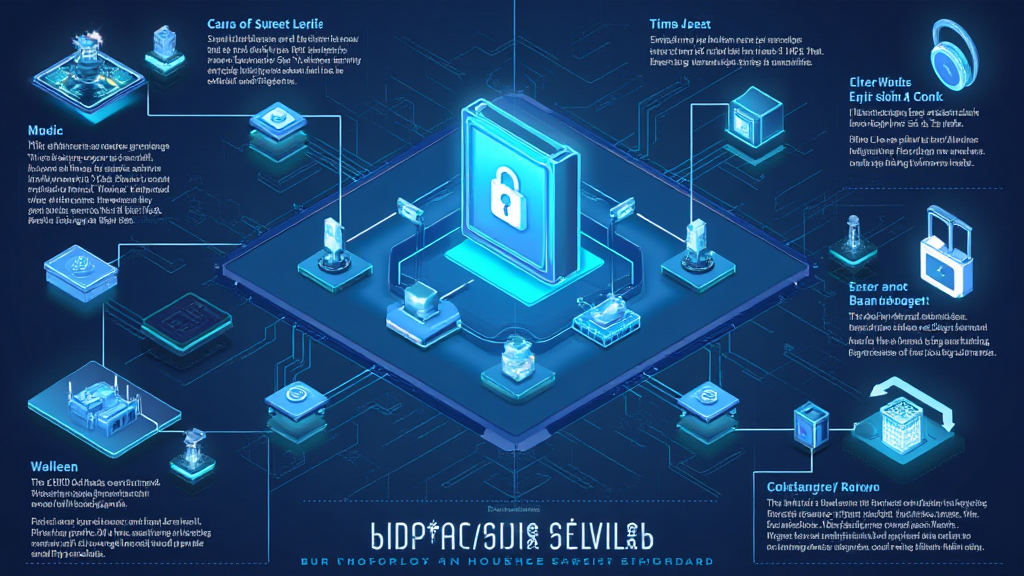2025 Blockchain Security Standards: A Comprehensive Guide for Digital Asset Protection
In recent years, the rise of decentralized finance (DeFi) has transformed how we view finance and investment. However, along with this transformation comes significant risks. In 2024 alone, over $4.1 billion was lost to DeFi hacks, underscoring the critical need for robust security measures. Understanding the blockchain security standards for 2025 is essential for anyone looking to protect their digital assets effectively.
Understanding Blockchain Security
Blockchain security involves the various measures and protocols designed to protect the integrity, confidentiality, and availability of blockchain networks, as well as the assets stored and transacted within them. The significance of blockchain security cannot be overstated, especially as the adoption of cryptocurrencies and other digital assets continues to grow worldwide.
Consensus Mechanism Vulnerabilities
When considering the security of a blockchain, one must examine its consensus mechanism. This process is vital for validating transactions and maintaining the integrity of the blockchain. Different consensus mechanisms, such as Proof of Work (PoW) and Proof of Stake (PoS), each come with their own set of vulnerabilities. For instance, PoW systems can be susceptible to 51% attacks, where malicious actors gain control of the majority of the network’s hashing power, allowing them to manipulate the blockchain.

- Proof of Work (PoW): Vulnerable to 51% attacks.
- Proof of Stake (PoS): Risks include centralization.
Smart Contract Security
Smart contracts are self-executing contracts with the terms of the agreement between buyer and seller being directly written into lines of code. Security vulnerabilities in smart contracts can lead to significant losses. In fact, from 2020 to 2024, it is estimated that over $2 billion was lost due to exploits and vulnerabilities in smart contracts. This emphasizes the need for rigorous audits and adherence to best practices.
To secure smart contracts effectively, developers should:
- Implement comprehensive testing before deployment.
- Use proven libraries and frameworks.
- Conduct regular audits by trusted third parties.
Insider Threats and Governance
As with traditional systems, blockchain networks are not immune to insider threats. Trust is paramount in decentralized systems, but poor governance can lead to vulnerabilities. Establishing clear governance protocols can help mitigate these risks. For example, the DAO hack in 2016, where over $60 million worth of Ethereum was stolen, highlighted the need for robust governance frameworks.
Regulatory Compliance and its Impact on Blockchain Security
In 2025, regulatory compliance will play a more significant role in enhancing blockchain security protocols. Governments worldwide are beginning to implement cryptocurrency regulations to protect consumers and improve security practices within the industry. In Vietnam, the government’s focus on digital finance opens a pathway for platforms like arcoInnovation to provide Vietnamese-language tutorials and guides on navigating these regulatory landscapes.
This move towards regulation means that companies operating with blockchain technologies will need to understand and integrate compliance measures effectively. A compliant platform will not only enhance security but also build consumer trust.
Practical Security Tools
As users of cryptocurrencies, having the right tools can significantly reduce the likelihood of hacks and lost assets. Here are some recommended tools that enhance blockchain security:
- Ledger Nano X: A hardware wallet that reduces hacks by 70%.
- Metamask: Offers user-friendly wallet solutions for managing Ethereum-based assets.
Utilizing hardware wallets and secure applications can substantially mitigate risks associated with online asset management.
The Vietnam Market Growth
Vietnam is experiencing rapid growth in user adoption of cryptocurrencies and blockchain technologies. Recent statistics indicate a user growth rate of 59% in the last year, making it a critical market for blockchain innovation and education. As the demand for knowledge increases, resources like HIBT Vietnam’s Vietnamese-language tutorials will become essential for educating users about emerging security standards.
Conclusion: A Call to Action
For anyone looking to ensure their investments and operations are secure in the rapidly-evolving blockchain landscape of 2025, understanding the security standards is not optional; it is imperative. As outlined, vulnerabilities exist in various aspects of a blockchain, whether it be its consensus mechanism, smart contracts, or governance structures.
With the Vietnamese market booming and the increasing regulatory focus, tools and resources such as HIBT Vietnam Vietnamese-language tutorials will empower users to protect their digital assets. It is vital to continuously educate oneself and stay informed of the latest security practices, as this is the only way to ensure the protection of your digital investments.
Disclaimer: This content is not financial advice. Always consult local regulations prior to making any investment decisions.
By consistently advocating for better practices and utilizing available resources, the community can work together to achieve a higher standard of security in the cryptocurrency space.
Written by Dr. Vanessa Ho, a blockchain security specialist with over 15 published papers in the field and has led audits for renowned projects.





